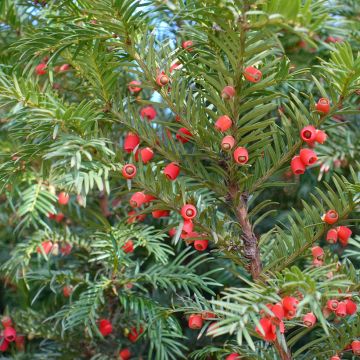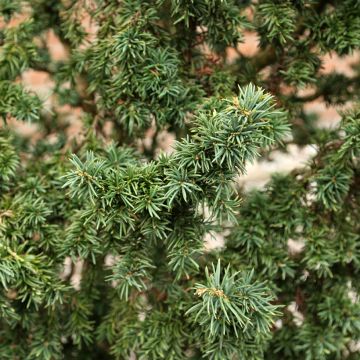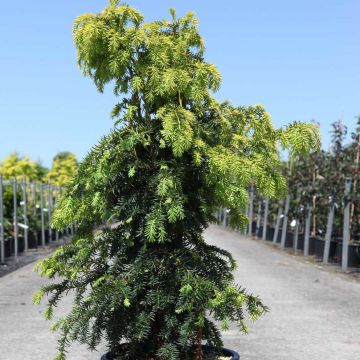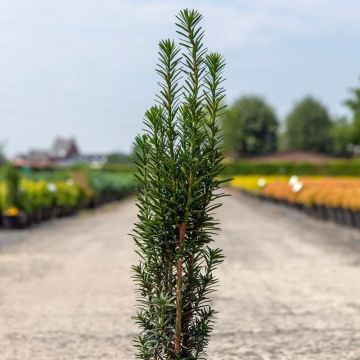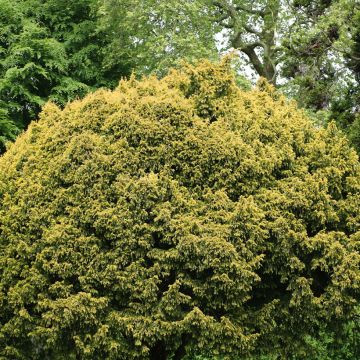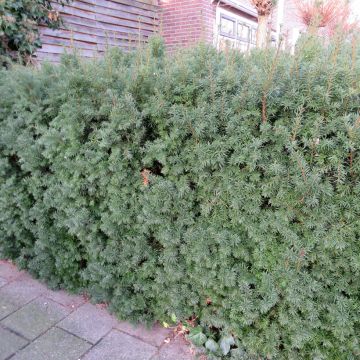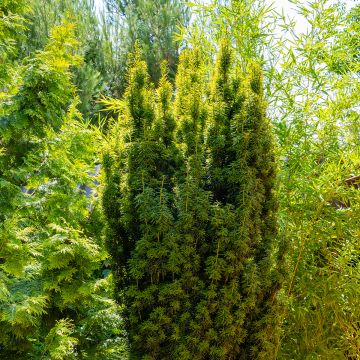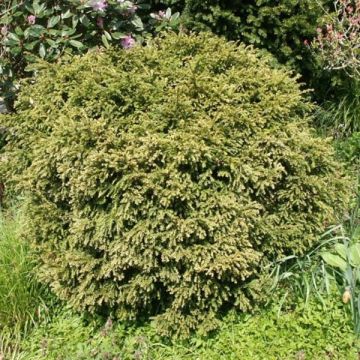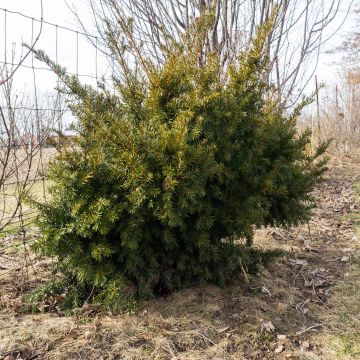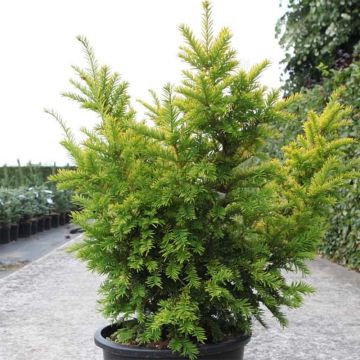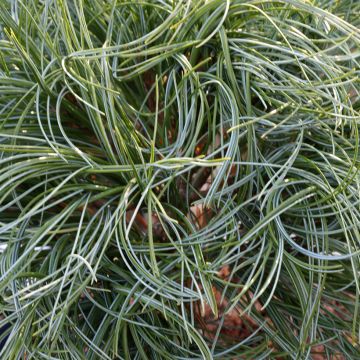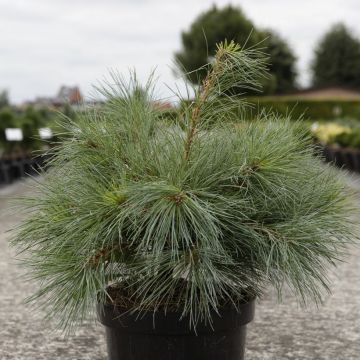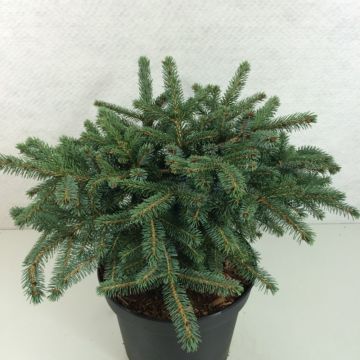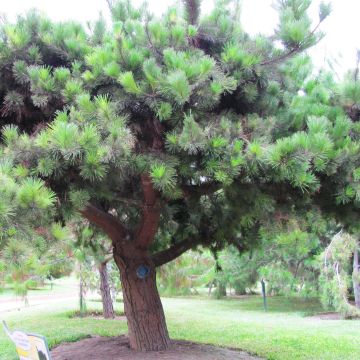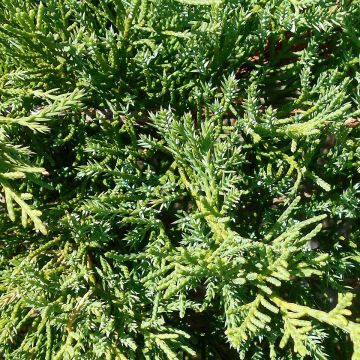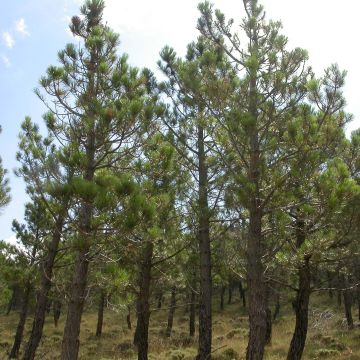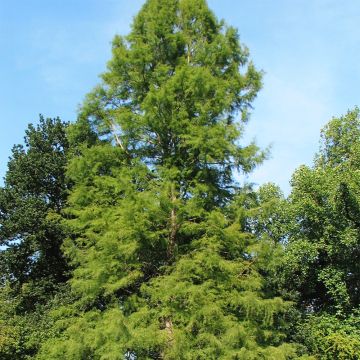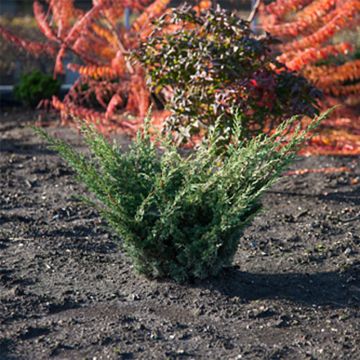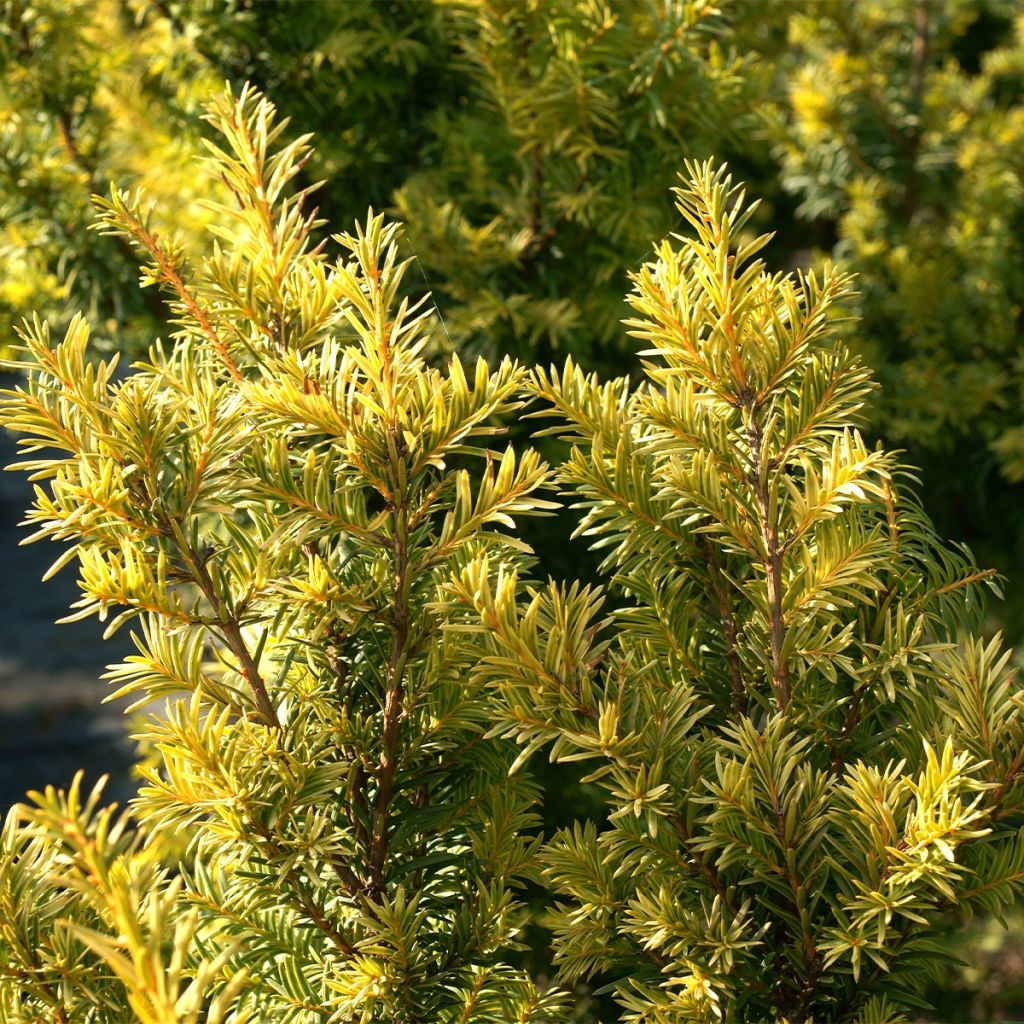

Taxus baccata Kupfergold - Yew
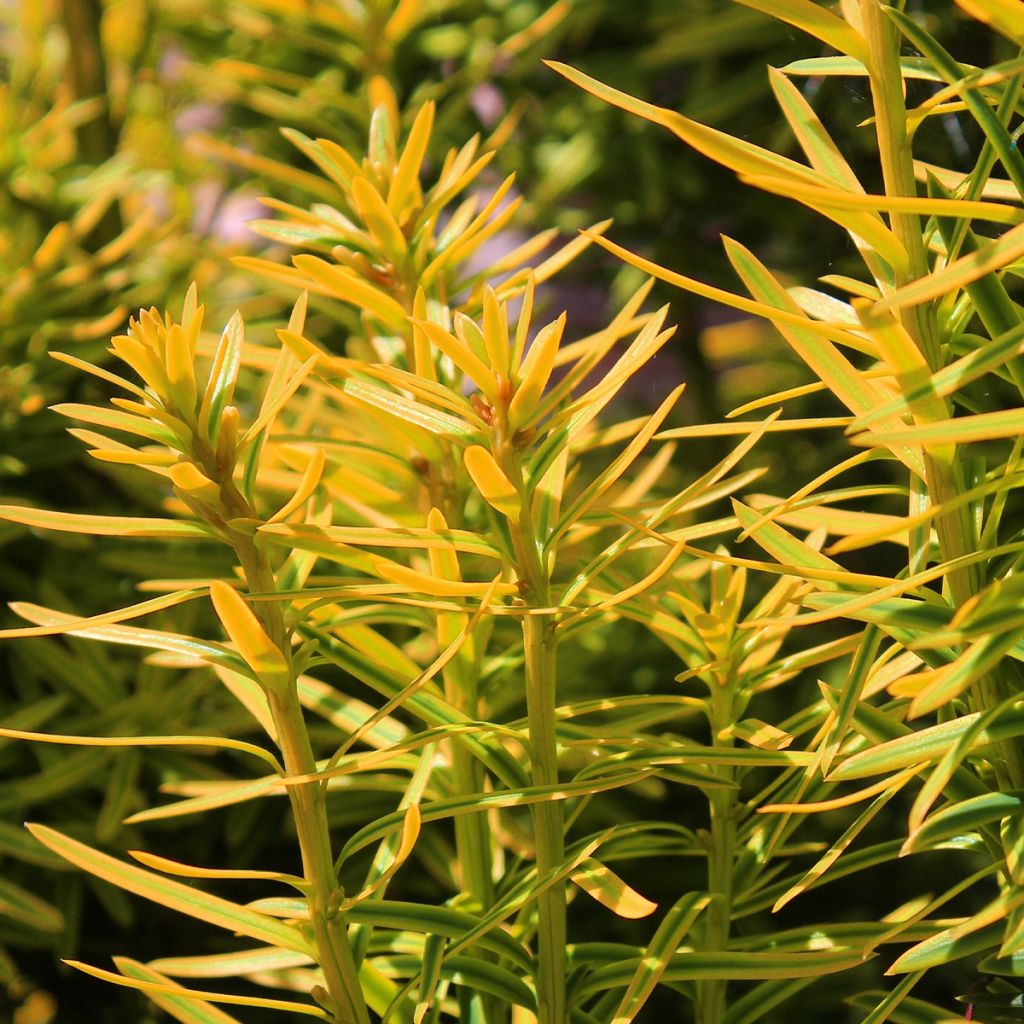

Taxus baccata Kupfergold - Yew
Taxus baccata Kupfergold - Yew
Taxus baccata Kupfergold
Yew, Common Yew, English Yew, European Yew
Special offer!
Receive a €20 voucher for any order over €90 (excluding delivery costs, credit notes, and plastic-free options)!
1- Add your favorite plants to your cart.
2- Once you have reached €90, confirm your order (you can even choose the delivery date!).
3- As soon as your order is shipped, you will receive an email containing your voucher code, valid for 3 months (90 days).
Your voucher is unique and can only be used once, for any order with a minimum value of €20, excluding delivery costs.
Can be combined with other current offers, non-divisible and non-refundable.
Home or relay delivery (depending on size and destination)
Schedule delivery date,
and select date in basket
This plant carries a 24 months recovery warranty
More information
We guarantee the quality of our plants for a full growing cycle, and will replace at our expense any plant that fails to recover under normal climatic and planting conditions.
Would this plant suit my garden?
Set up your Plantfit profile →
Description
Taxus baccata 'Kupfergold' is a bright variety of common yew, contrasting with the slightly austere look of the species. Adorned with beautiful golden foliage, this conifer slowly forms a beautiful dense specimen, almost as wide as it is high. Being a compact bush, it is well suited to small gardens, where it can be planted alone or integrated into a bed, lighting it up with its cheerful colour all year round. Easy to grow, this hardy conifer adapts to most soils and grows in both sun and partial shade.
Very present in the oldest gardens and parks in Europe, Taxus baccata can live for many years. Their longevity is indeed remarkable and can reach several centuries. The species, now rare in the wild, is native to Europe, Asia Minor, and North Africa. Some specimens growing in the Verdon gorges are believed to be over a thousand years old. You can admire impressive specimens in old gardens or cemeteries, near churches for symbolic reasons (considered as the link between heaven and earth). The needles, bark, leaves, and fruits are toxic to humans and animals, except for birds that consume the berries while rejecting the seeds. The common yew is a non-resinous conifer from the small Taxaceae family, whose toxic seeds are not contained in cones, but in arils (red fruits whose pulp is not toxic).
The cultivar 'Kupfergold' (copper gold in German, referring to its foliage colour) is distinguished by slow growth, a wide and rather spreading habit, and golden foliage. It slowly forms a bush about 2m (7ft) high and 1.5 to 1.8m (5 to 6ft) wide. It reaches maturity after 20 to 50 years: it's a plant for patient gardeners! Its evergreen foliage displays a beautiful golden green colour all year round, which is particularly bright and welcome during the dark winter days. Its branchlets are adorned with flat needles, yellow to yellow-green and shiny with a marked reverse of 2 white bands, pointed at the end, but very soft to the touch. Yew is a solid plant, resistant to cold (-20°C (-4°F), or even below), tolerating most soils and rather resistant to drought once well rooted. It grows in sun or partial shade, even in full shade in hot and dry climates. All parts of this plant (except the pulp of the fruit) being very toxic, care should be taken with children to avoid any accident.
Taxus baccata 'Kupfergold' is an easy-to-grow conifer. It will look beautiful Isolated on a lawn. However, be patient, as its growth is really not fast. It may be advisable to plant it mixed in a bed, taking care not to plant fast-growing plants near it that could suffocate it. It can be planted with other slow-growing conifers with complementary colours, such as Pinus mugo 'Mops', a mountain pine with beautiful green foliage, or Picea glauca 'Laurin', a nice regular light green cone in spring, becoming glaucous in winter. Beautiful contrasts can be created by juxtaposing conifers with blue foliage like the superb Picea pungens Glauca 'Globosa', or the sculptural Juniperus scopulorum 'Skyrocket', with its slender columnar habit. For stronger colour oppositions, the almost black purple of Sambucus nigra 'Black Tower' will be perfect, just like Berberis thunbergii 'Red Rocket', with its very upright habit and purple foliage turning red in the autumn.
Report an error about the product description
Taxus baccata Kupfergold - Yew in pictures
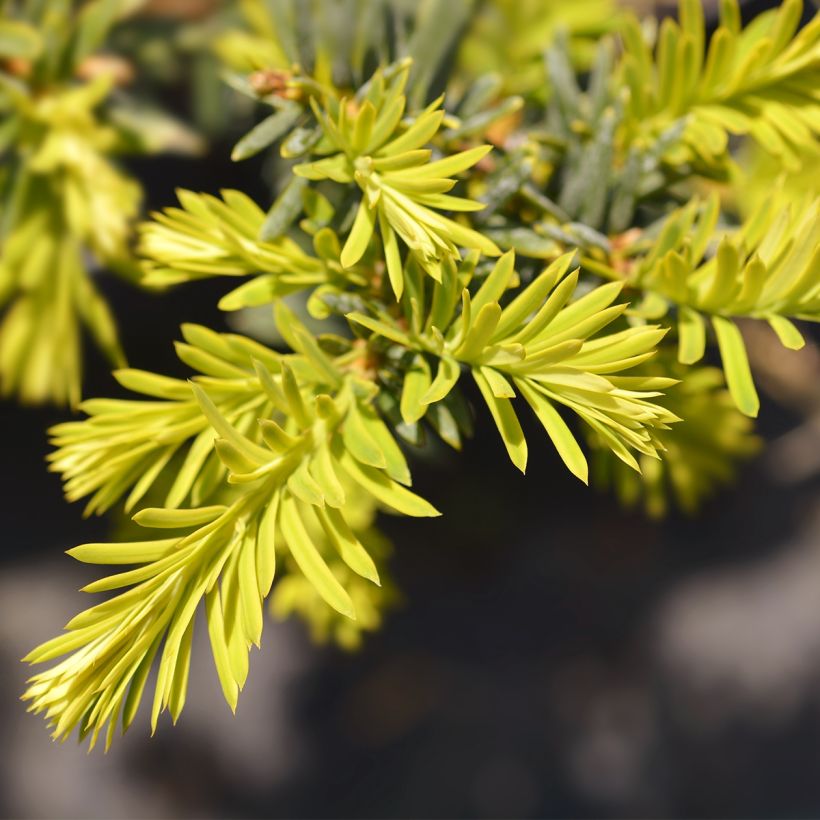

Plant habit
Flowering
Foliage
Safety measures
Botanical data
Taxus
baccata
Kupfergold
Taxaceae
Yew, Common Yew, English Yew, European Yew
Cultivar or hybrid
ingestion
Cette plante est toxique si elle est ingérée volontairement ou involontairement.
Ne la plantez pas là où de jeunes enfants peuvent évoluer, et lavez-vous les mains après l'avoir manipulée.
Pensez à conserver l'étiquette de la plante, à la photographier ou à noter son nom, afin de faciliter le travail des professionnels de santé.
Davantage d'informations sur https://plantes-risque.info
Other Taxus - Yew
View all →Planting and care
The common yew is an undemanding plant. It thrives in the sun or semi-shade, or even in full shade in a warm climate. It likes ordinary soil, well loosened at the time of planting. It will be happy in calcareous or acidic soil that is moist to dry in summer. It easily adapts to all climates and all soils. If necessary, prune twice a year, in spring and in autumn (the latter allowing to readjust the first).
Planting period
Intended location
Care
This item has not been reviewed yet - be the first to leave a review about it.
Similar products
Haven't found what you were looking for?
Hardiness is the lowest winter temperature a plant can endure without suffering serious damage or even dying. However, hardiness is affected by location (a sheltered area, such as a patio), protection (winter cover) and soil type (hardiness is improved by well-drained soil).

Photo Sharing Terms & Conditions
In order to encourage gardeners to interact and share their experiences, Promesse de fleurs offers various media enabling content to be uploaded onto its Site - in particular via the ‘Photo sharing’ module.
The User agrees to refrain from:
- Posting any content that is illegal, prejudicial, insulting, racist, inciteful to hatred, revisionist, contrary to public decency, that infringes on privacy or on the privacy rights of third parties, in particular the publicity rights of persons and goods, intellectual property rights, or the right to privacy.
- Submitting content on behalf of a third party;
- Impersonate the identity of a third party and/or publish any personal information about a third party;
In general, the User undertakes to refrain from any unethical behaviour.
All Content (in particular text, comments, files, images, photos, videos, creative works, etc.), which may be subject to property or intellectual property rights, image or other private rights, shall remain the property of the User, subject to the limited rights granted by the terms of the licence granted by Promesse de fleurs as stated below. Users are at liberty to publish or not to publish such Content on the Site, notably via the ‘Photo Sharing’ facility, and accept that this Content shall be made public and freely accessible, notably on the Internet.
Users further acknowledge, undertake to have ,and guarantee that they hold all necessary rights and permissions to publish such material on the Site, in particular with regard to the legislation in force pertaining to any privacy, property, intellectual property, image, or contractual rights, or rights of any other nature. By publishing such Content on the Site, Users acknowledge accepting full liability as publishers of the Content within the meaning of the law, and grant Promesse de fleurs, free of charge, an inclusive, worldwide licence for the said Content for the entire duration of its publication, including all reproduction, representation, up/downloading, displaying, performing, transmission, and storage rights.
Users also grant permission for their name to be linked to the Content and accept that this link may not always be made available.
By engaging in posting material, Users consent to their Content becoming automatically accessible on the Internet, in particular on other sites and/or blogs and/or web pages of the Promesse de fleurs site, including in particular social pages and the Promesse de fleurs catalogue.
Users may secure the removal of entrusted content free of charge by issuing a simple request via our contact form.
The flowering period indicated on our website applies to countries and regions located in USDA zone 8 (France, the United Kingdom, Ireland, the Netherlands, etc.)
It will vary according to where you live:
- In zones 9 to 10 (Italy, Spain, Greece, etc.), flowering will occur about 2 to 4 weeks earlier.
- In zones 6 to 7 (Germany, Poland, Slovenia, and lower mountainous regions), flowering will be delayed by 2 to 3 weeks.
- In zone 5 (Central Europe, Scandinavia), blooming will be delayed by 3 to 5 weeks.
In temperate climates, pruning of spring-flowering shrubs (forsythia, spireas, etc.) should be done just after flowering.
Pruning of summer-flowering shrubs (Indian Lilac, Perovskia, etc.) can be done in winter or spring.
In cold regions as well as with frost-sensitive plants, avoid pruning too early when severe frosts may still occur.
The planting period indicated on our website applies to countries and regions located in USDA zone 8 (France, United Kingdom, Ireland, Netherlands).
It will vary according to where you live:
- In Mediterranean zones (Marseille, Madrid, Milan, etc.), autumn and winter are the best planting periods.
- In continental zones (Strasbourg, Munich, Vienna, etc.), delay planting by 2 to 3 weeks in spring and bring it forward by 2 to 4 weeks in autumn.
- In mountainous regions (the Alps, Pyrenees, Carpathians, etc.), it is best to plant in late spring (May-June) or late summer (August-September).
The harvesting period indicated on our website applies to countries and regions in USDA zone 8 (France, England, Ireland, the Netherlands).
In colder areas (Scandinavia, Poland, Austria...) fruit and vegetable harvests are likely to be delayed by 3-4 weeks.
In warmer areas (Italy, Spain, Greece, etc.), harvesting will probably take place earlier, depending on weather conditions.
The sowing periods indicated on our website apply to countries and regions within USDA Zone 8 (France, UK, Ireland, Netherlands).
In colder areas (Scandinavia, Poland, Austria...), delay any outdoor sowing by 3-4 weeks, or sow under glass.
In warmer climes (Italy, Spain, Greece, etc.), bring outdoor sowing forward by a few weeks.






























